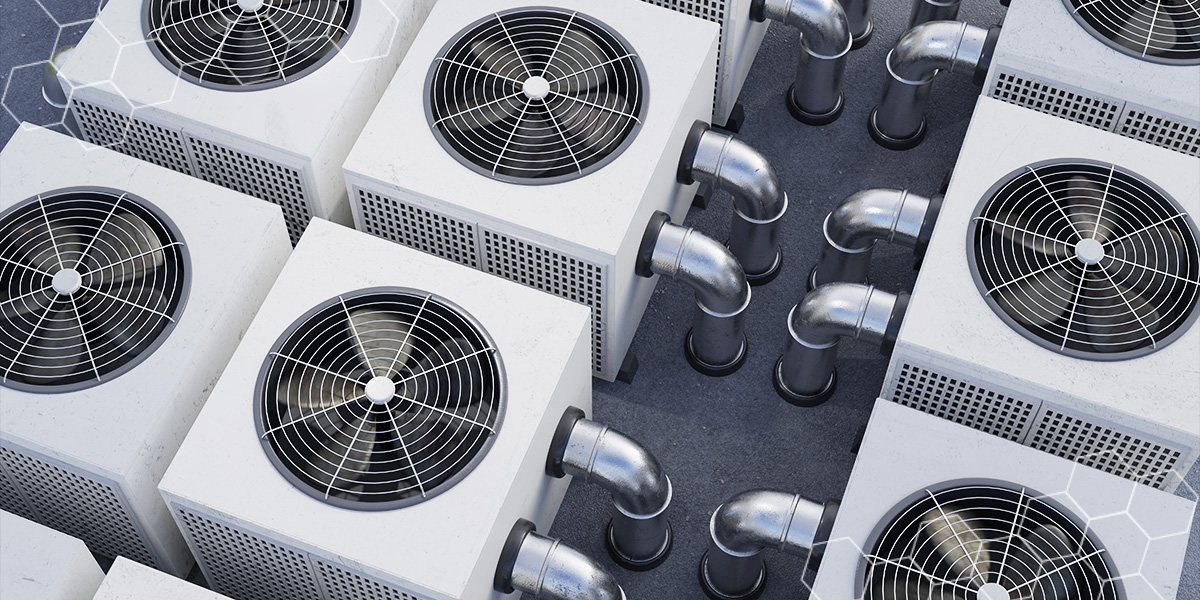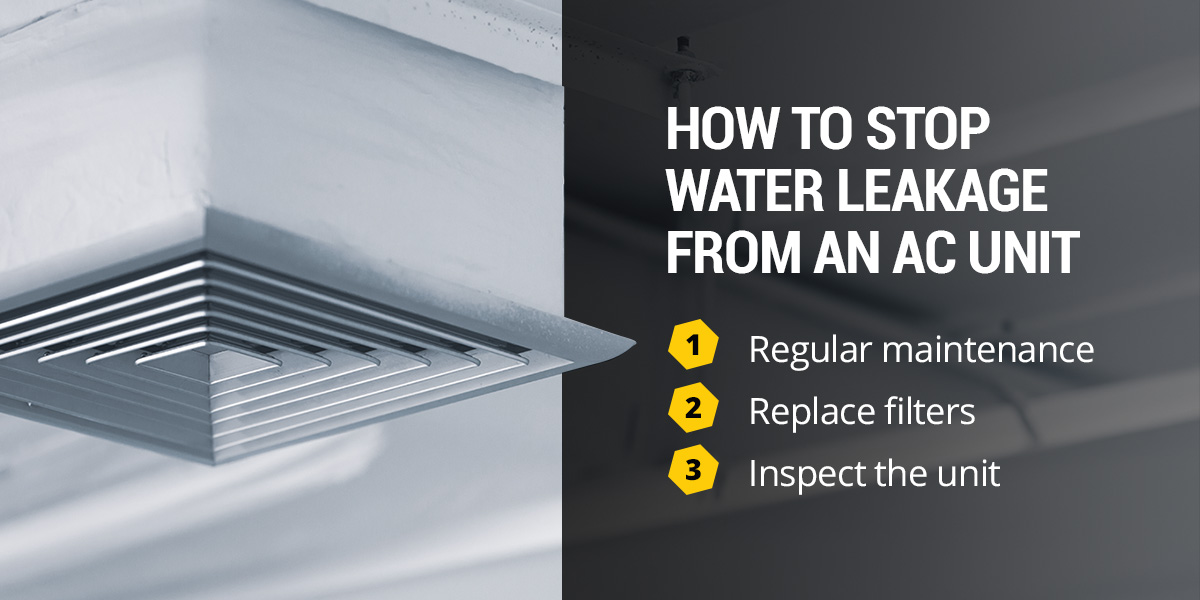

Commercial buildings need quality air conditioning (AC) to keep them cool. Without proper cooling, commercial spaces heat up, making work uncomfortable for employees and potentially damaging equipment and stock. Keeping your building’s AC unit well-maintained is crucial to ensure it works properly when you need it most.
When your AC unit starts leaking water, you need to find the leak source. Unchecked leaks can lead to AC issues and water damage, affecting your commercial operation. Understanding why water is dripping from indoor AC units can help you get your AC back in shape faster.
Why does your AC leak water? Here are some possible reasons to consider if your AC is leaking:
Clogs or blocks in your AC drain line are a common reason your unit is leaking. The drain line removes condensation produced by the AC during cooling. Over time, dirt, dust, and mold can pull in the drain line, leading to blocks and clogs. When this happens, water from condensation starts to back up into the unit and leak out. Regular cleaning is essential for preventing clogs from causing leaks.
Dirty air filters will also cause leaks occasionally. Air filters trap dust and debris, keeping it from circulating through your building. When the filters become too clogged, they stop working effectively. Restricted airflow prevents the evaporator coils from getting the air they’re used to. This restricted airflow can cause the evaporator coils to freeze. When they eventually thaw, this excess water overflows from the drain pan and leaks out of the unit.
Proper installation is essential for good AC function and maintaining your heating, ventilation, and air conditioning (HVAC) system’s useful life. If your unit is not installed correctly, you could start seeing regular problems. Issues like poor alignment, incorrectly sized units, or insufficient sealing can all make AC issues worse. Combine installation issues with poor drainage and water leaks, and your AC system will regularly have water issues.
Many AC units in commercial buildings come with a condensate pump. These pumps remove water from the system, taking it away so it can’t damage your building. If the condensate breaks or malfunctions, that water has nowhere to go. You’ll get water buildup and leaks. It’s important to regularly check the condensate pump to ensure it’s working correctly. Otherwise, you could have leaks spring up.
Low refrigerant levels are another potential reason why your HVAC is leaking water. AC refrigerant is a major component in system cooling.
The refrigerant starts out cool. As hot air is drawn into the AC, the heat gets absorbed by the refrigerant. The now-hot refrigerant travels to the outdoor unit. Meanwhile, the cool air gets circulated through your building. When the refrigerant gets to the outside unit, it releases the hot air and returns to collect more heat from the hot air.
Your refrigerant needs to reach certain levels to function correctly. If it’s low, your system pressure drops, freezing the evaporator coils. Thawing coils leak water back into the unit.
A disconnected drain line could also cause your unit to leak. While the drain line is supposed to stay connected, improper installation, vibrations, or accidents can disconnect it. When this happens, your AC unit no longer has a way to get rid of condensation buildup, and water will leak outside the AC.
Damaged drain pans might also cause AC leaks. The drain pan collects condensation from the evaporator coils, sending that water to the drain line. Over time, the drain pan can crack or rust. Too much damage can cause water to leak out of the drain pan instead of draining away. If you’ve found water outside your AC unit, check the drain pan for damage and replace it immediately to prevent further leaking.
High humidity can contribute to AC leaks. As the air moisture increases, it creates more condensation inside your AC unit. Excessive moisture can overwhelm your AC system, causing leaks. Additionally, high humidity might strain the system. If the unit has to work harder and longer, it can increase AC wear and tear. Over time, these challenging conditions can wear out your AC components faster, also causing leaks.

Water leakage can lead to mold growth and AC damage if left unchecked. Protect your building by staying on top of water leaks with these tips:
If you’re experiencing water leakage, you should have your AC fixed immediately. While you wait for your AC to be fixed, rent high-quality commercial HVAC equipment from Thompson Power Systems.
We specialize in Cat® temperature control applications, ensuring your building stays cool. Our systems can help you manage power failures, maintenance shutdowns, and more. By renting from us, you can maintain optimal process temperatures, protecting your bottom line and productivity.
Thompson Power Systems provides an extensive selection of temperature control rentals, including:
With air conditioning systems ranging from 1 ton to 80 tons, we have something for everyone. If you’re in Alabama or Northwest Florida, our team can help you find the solutions you need. With over 65 years of experience, you can trust us to give your commercial space the attention it deserves.
Choose Thompson Power Systems for your HVAC rental needs and enjoy the benefits of flexibility, quality, and experienced support. Reach out to us today to ensure your commercial building remains comfortable at all times.